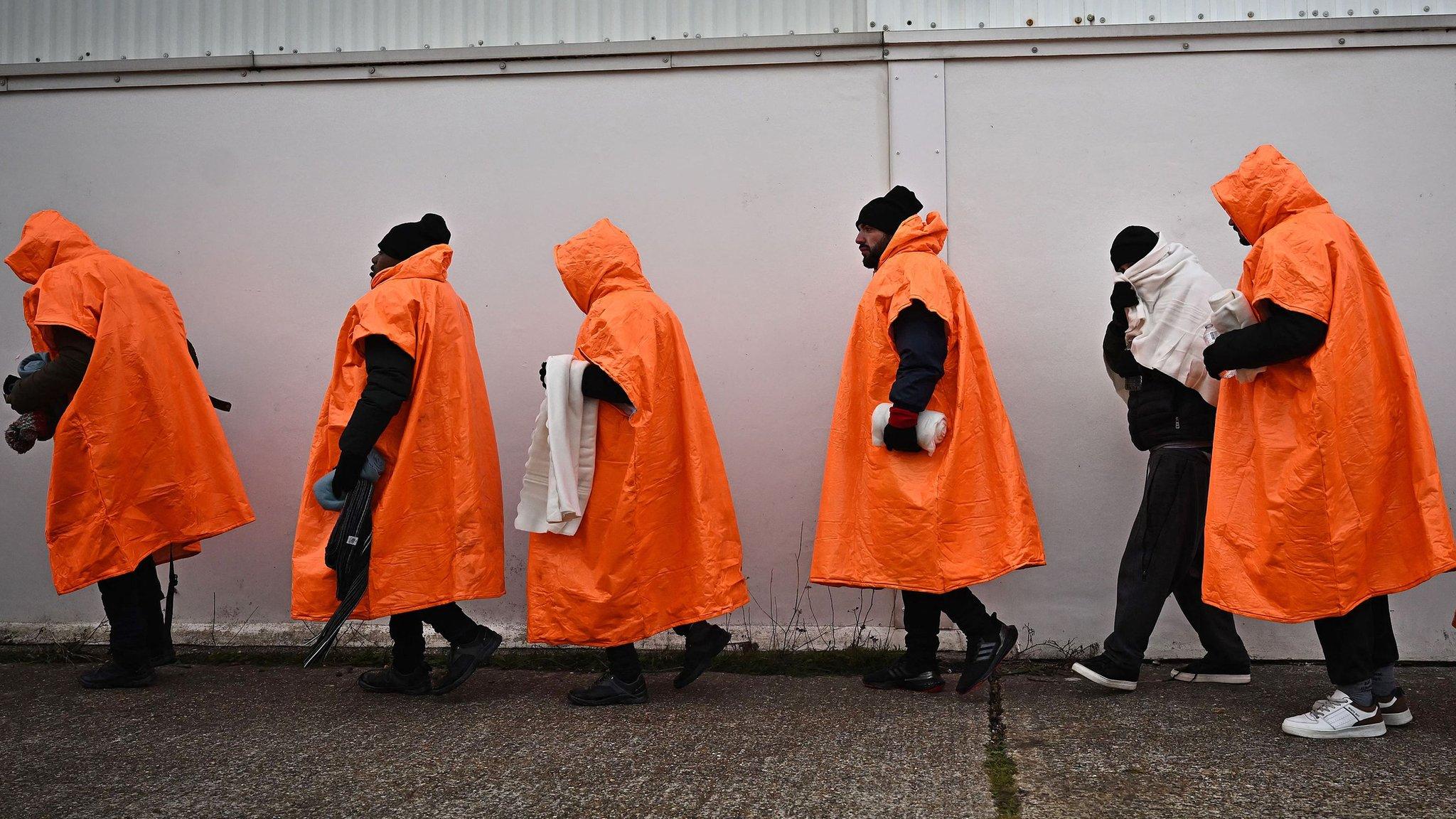Migration bill risks damage to UK's reputation, says Archbishop of Canterbury
- Published
The Archbishop of Canterbury argues against the Illegal Migration Bill, but Lord Howard backs it.
The Archbishop of Canterbury has attacked the government's migration plans, saying they risked "great damage" to the UK's reputation.
Justin Welby said the Illegal Migration Bill would not stop small boat crossings, and it failed in "our moral responsibility" towards refugees.
He was speaking as the bill began what is expected to be a rocky passage through the House of Lords.
But Immigration Minister Robert Jenrick urged peers to back the legislation.
Adding that the archbishop was "wrong" in his criticism, he said: "There is nothing moral about allowing the pernicious trade of people smugglers to continue.
"I want to see that stopped, and this bill is the only way to do that," he told BBC Radio 4's World at One.
He added that critics of the bill, including opposition parties, had not suggested "any viable alternatives" to stop journeys across the Channel.
The archbishop's pointed intervention came during a lengthy, highly charged debate about the bill in the Lords on Wednesday.
The legislation cleared its first parliamentary hurdle in the Lords after a Liberal Democrat bid to block it was rejected by 179 votes to 76.
The bill, unveiled in March, is a key part of Prime Minister Rishi Sunak's plan to "stop" small boats crossing the English Channel - which he has made a priority ahead of the next general election.
It will place a legal duty on the home secretary to detain and remove those arriving in the UK illegally, to Rwanda or another "safe" third country.
This has prompted outrage from opposition parties and charities, which argue the bill is unworkable and could breach international law.
'Short-term fix'
The archbishop, one of nearly 90 peers who have put their names down to speak in the debate, told the Lords the bill "fails utterly" to take long-term view of the migration challenges around the world.
Although he conceded existing international law was in need of updating, he said the bill represented a "dramatic departure" from existing conventions and would undermine international co-operation on the issue.
Describing the bill as a "short-term fix," he said it "risks great damage to the UK's interests and reputation, at home and abroad".
He added it was "morally unacceptable and politically impractical" for the UK to let the poorest countries deal with asylum seekers when the UK is cutting its international aid spending.
Baroness Helic, a former adviser to William Hague when he was foreign secretary, described the government's plans to stop small boats as "a race to the bottom".
The baroness, who fled to the UK from war-torn Bosnia at the age of 23, argued the Illegal Migration Bill represented "an outright ban on asylum" and questioned its morality.
But other peers spoke for the bill, including Conservative Lord Forsyth, who said he was "yet to hear" a solution to stop boat crossings from critics of the bill.
He congratulated the archbishop for his "fantastic job" at the Coronation on Saturday, but added that while he agreed with him on spiritual matters, they disagreed on the bill.
He said he agreed it needed further scrutiny, but it was "not reasonable to criticise the government for trying to deal with this problem".
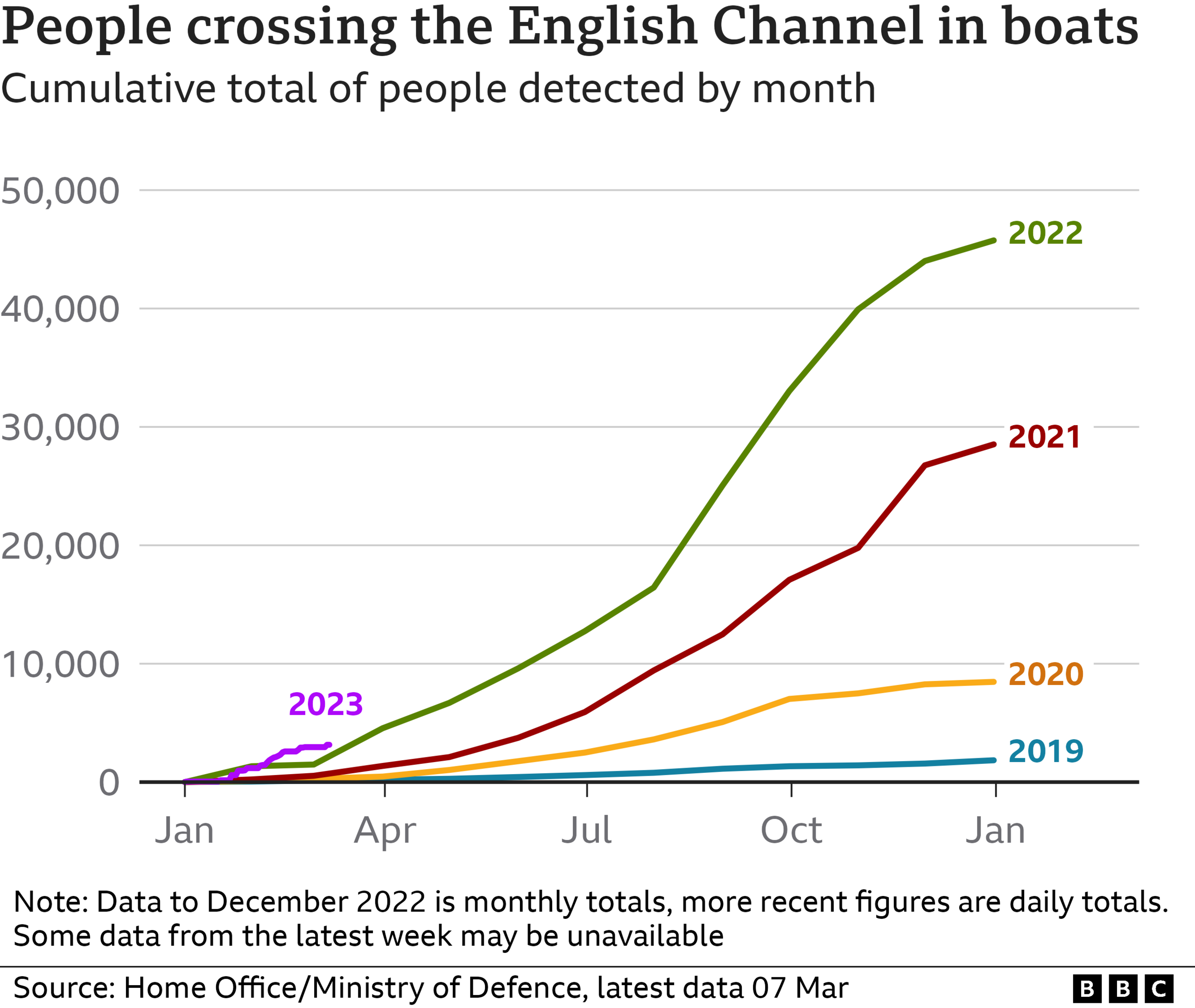
The government made a series of concessions to different sections of the Conservative Party to ease its passage through the Commons last month.
However, senior peers have told the BBC they expect significant opposition in the Lords - where the government does not have a majority.
Although peers did not vote on amendments during the debate, it was their first chance to have a say on the bill.
Lib Dem peer Lord Paddick put forward a rare "motion to decline" that would have blocked the bill from continuing in the Lords, forcing the government to reintroduce it from scratch in the Commons.
But the motion was heavily defeated in the Lords, with peers rejecting it by 179 votes to 76, majority 103.
Lord Paddick said: "This Bill is all pain and no gain. This is a question of principle."
Labour peer Lord Coaker said that although his party was against the bill, the Lib Dem motion was not the best way to oppose it.
He said Labour would do "all we can" to change the bill at a later stage, vowing that the party would not be "cowed" into accepting the verdict of the Commons.
Modern slavery concerns
Several peers have already spoken out against changes giving ministers more leeway to ignore attempts by European judges to halt deportations of migrants from the UK.
The government has also faced strong criticism from senior Tories, including former Prime Minister Theresa May and former Tory leader Sir Iain Duncan Smith, over the potential impact of the bill on victims of modern slavery.
The bill would take away temporary protections against removal from the UK that are currently offered to suspected victims of modern slavery or human trafficking while their case is considered.
Critics say this could deter victims from going to the police.
There has also been concern, including among Conservative MPs, over new powers in the bill to detain children on the suspicion that they are liable for removal.
Ministers have agreed to work with Tory MPs on a time limit for how long unaccompanied children can be detained.
To get the bill through the Commons, ministers also promised to set out new safe and legal routes for asylum seekers, after pressure from backbenchers.
- Published27 April 2023
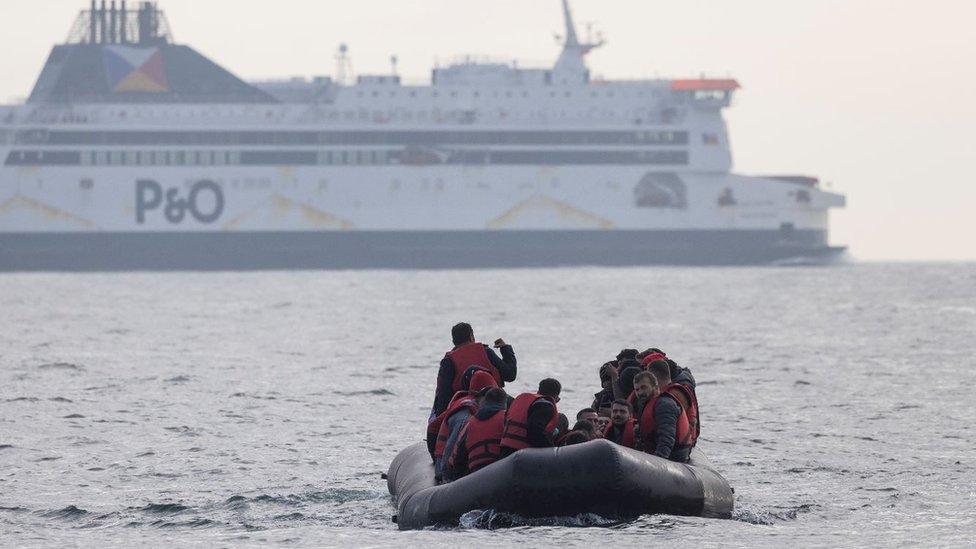
- Published24 April 2023
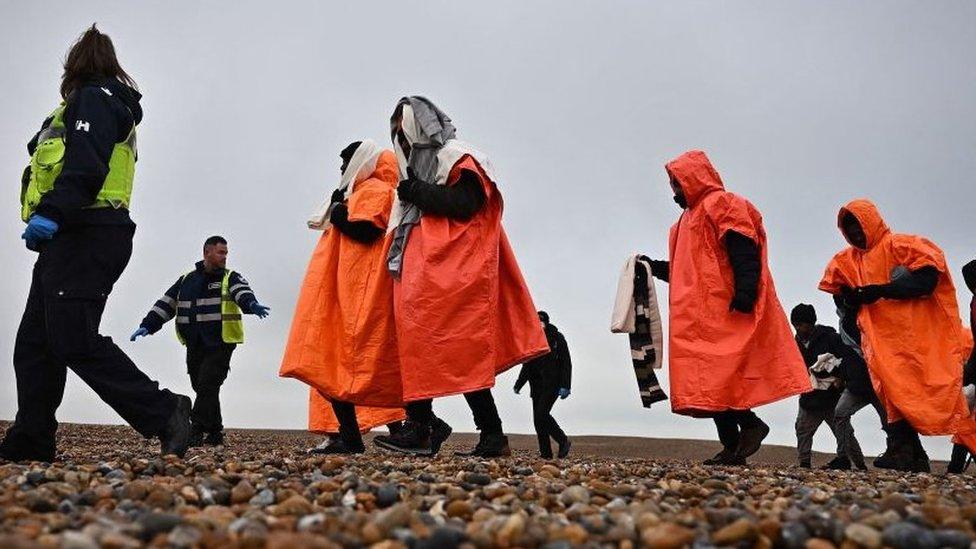
- Published13 March 2023
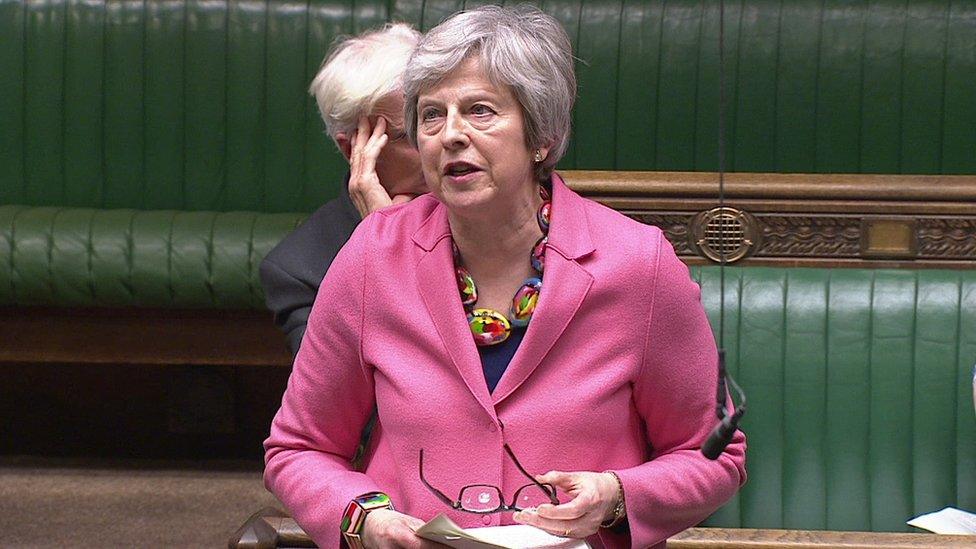
- Published9 March 2023
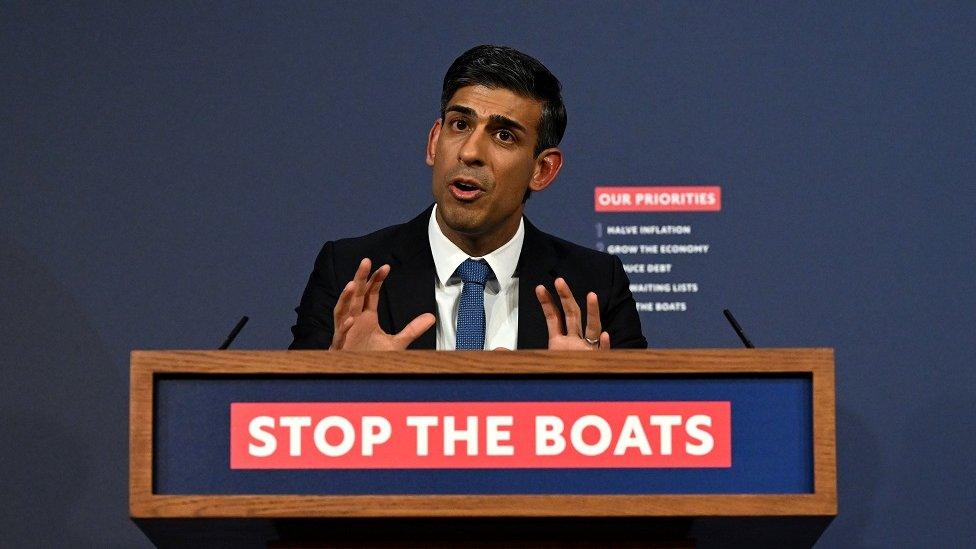
- Published13 December 2023
